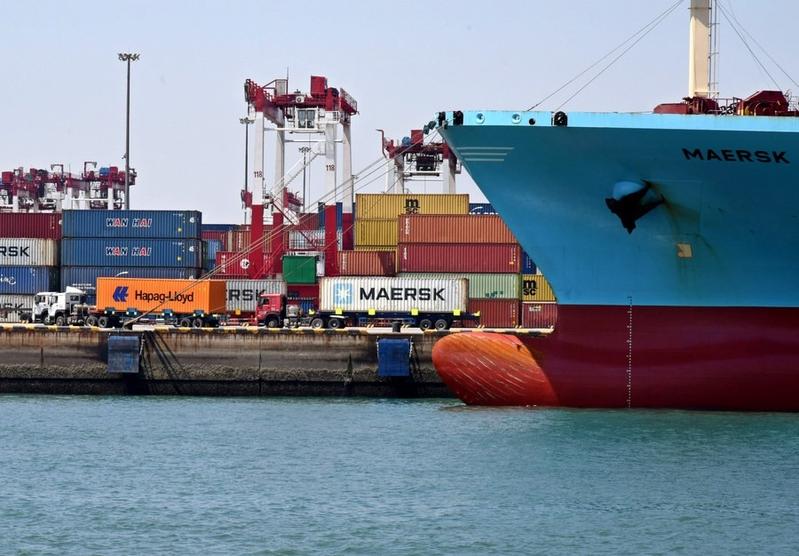 A container vessel docks at the Qianwan Container Terminal in Qingdao, East China's Shandong province on May 1, 2022. (PHOTO / XINHUA)
A container vessel docks at the Qianwan Container Terminal in Qingdao, East China's Shandong province on May 1, 2022. (PHOTO / XINHUA)
China is confident of achieving reasonable growth in foreign trade this year that should contribute to macroeconomic resilience, the Ministry of Commerce said on Thursday.
Addressing the media, Shu Jueting, a spokeswoman for the ministry, said that despite "increased pressure to ensure stable growth in trade... there are multiple enabling factors to stabilize foreign trade and improve trade quality".
Thanks to the orderly resumption of production and business operations like those of industrial and supply chains, and policy measures for economic growth, China's exports in May surged by 15.3 percent year-on-year to 1.98 trillion yuan ($290 billion), while imports rose 2.8 percent to 1.47 trillion yuan, the latest Customs data showed.
That has lifted the trade value for the first five months to 16.04 trillion yuan, up 8.3 percent year-on-year.
Shu said China's advantages in foreign trade-related industries will be further harnessed, thanks to the better coordination between domestic COVID-19 control and social and economic development.
Policy measures aimed at solving problems for enterprises and improving port efficiency will firmly support growth in foreign trade. And tariff cuts and trade facilitation made possible by new free trade agreements involving China will also propel foreign trade development, she said.
The ministry, she said, attaches great importance to enterprises' utilization of FTAs and has been exerting efforts to help enterprises to better understand and use rules of the Regional Comprehensive Economic Partnership agreement, which took effect on Jan 1.
The ministry has been promoting the implementation of the RCEP to urge local governments, industry organizations and enterprises to adapt to a more open and competitive environment and explore opportunities in regional and global markets.
It will also expand coverage of its RCEP-related training programs to more enterprises, while providing more assistance to enterprises so that they can make use of RCEP rules through enhanced public service platforms, she said.
Gao Lingyun, a senior research fellow at the Institute of World Economics and Politics, which is part of the Chinese Academy of Social Sciences, said Chinese product competitiveness remains strong despite the impact from COVID-19, and future prospects for the nation's foreign trade are promising, especially with more supportive policies expected in the short to medium term.


